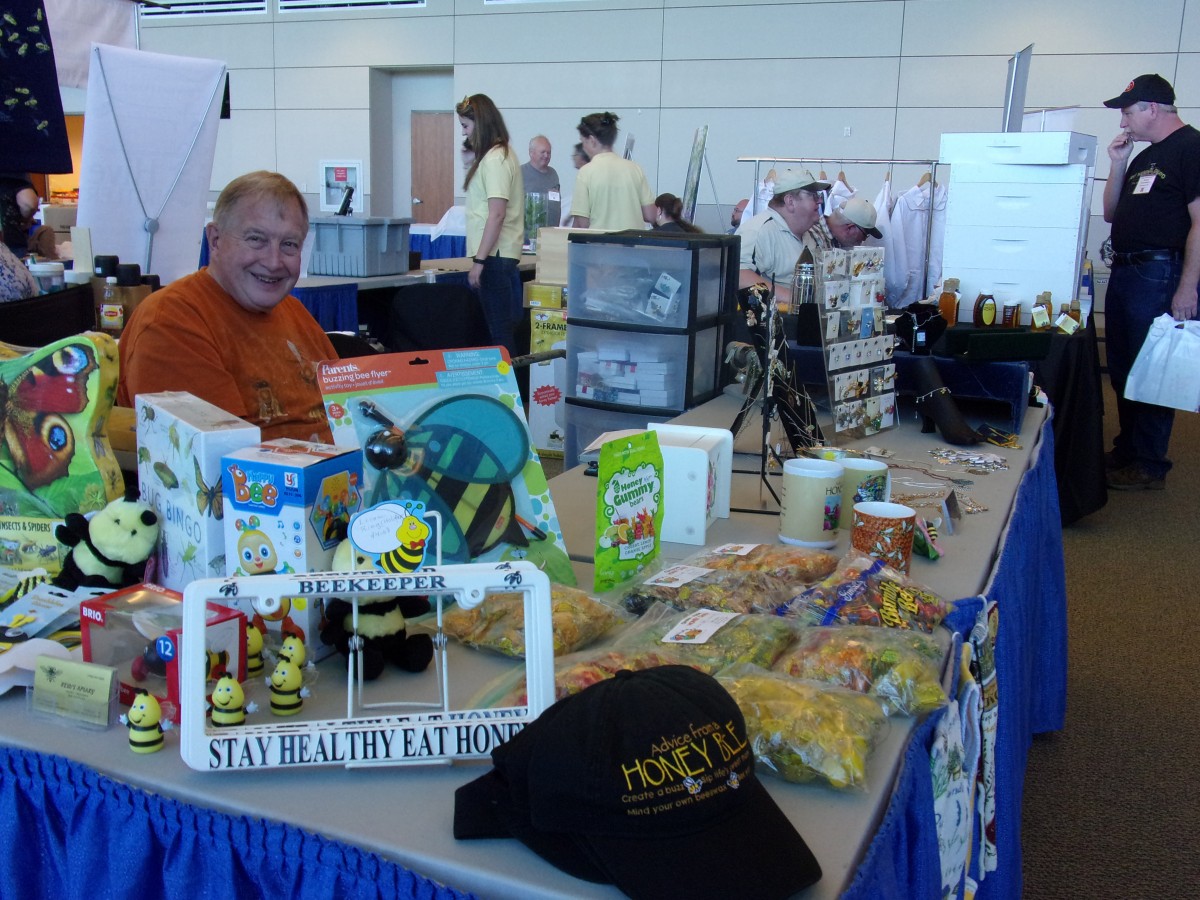FAIRMONT — Tom Hackett hasn’t been immune to the bee population decline that has affected beekeepers across the country.
“I lost two hives last year, and I’ve already lost one this year,” he said.
This weekend, Hackett and other fellow beekeepers came together for the annual West Virginia Beekeepers Association Conference at the Robert H. Mollohan Research Center in Fairmont.
“We have workshops, we bring in featured speakers, and it’s based around educating the beekeepers in West Virginia and surrounding states,” conference committee chair Louisa Householder said.
The conference allows for an exchange of ideas amongst beekeepers on how they can tackle some of the issues that they continue to face.
Householder says the bee population decline can be attributed to a variety of factors.
“(Bees) are subject to Varroa mites and other diseases that make it difficult, and there’s also environmental things that we’re dealing with,” Householder said. “New parasites are popping up here and there, so beekeepers are constantly trying to figure out how to mitigate the diseases and the parasites.”
Hackett has always been fascinated by bees, and while the bee population decline can be discouraging for beekeepers, he says “you have to deal with it and be persistent at it, just like anything in life.”
Bees play a vital role in the food chain for humans. A large percentage of the crops that provide food for humans are pollinated by bees.
“If we don’t have bees pollinating things like our corn or our produce, then we’re not going to have any food to eat,” Householder said. “That sounds like its exaggerative, but it isn’t.”
Despite the daunting obstacles that beekeepers face in keeping their hives alive, scientific research is leading to new breakthroughs every year.
“Our featured speaker (today), Dr. Samuel Ramsey, will be talking about a new discovery he made in the Varroa mites, which have been a plague for beekeepers for probably the last 20 years,” Householder said. “He’s going to be telling us that we always assumed that the Varroa mite was always feeding on the blood system of the bee, but he actually found out that it’s the fat of the bee, so it’s actually a gastrointestinal problem.”
Ramsey is an entomology professor at the University of Maryland who studies the effects and feeding habits of the Varroa mite on bee colonies and individual bees.
“With new research we always find out new things all the time,” Householder said. “There’s always new methods and treatments.”




